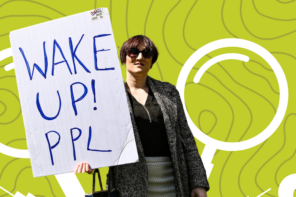While it may look on the surface like the anti-choice groups are rejoicing over the decision by the Susan G. Komen for the Cure to terminate its grants to Planned Parenthood for breast cancer screening because they want to deprive Planned Parenthood of funds over its provision of abortion services, the antipathy is even deeper than that. For anti-choice activists, spurred on by publications from the Catholic Church and others, Planned Parenthood and the Komen Foundation are part of a conspiracy to cover up purported links between abortion and breast cancer.
Numerous scientific and medical experts and organizations have studied this issue, and have concluded that there is no link between abortion and increased breast cancer risk, including the National Breast Cancer Coalition, the American Cancer Society, the World Health Organization, the American College of Obstetricians and Gynecologists, and the National Institutes of Health.
But for anti-choice activists, conspiracy theories about this supposed link abound. At the South Carolina Citizens for Life rally in Columbia last month, there was a large display featuring publications from the U.S. Conference of Catholic Bishops, as well as a news article highlighting a local diocese’s refusal to support the Race for the Cure because of Komen’s support for Planned Parenthood. The display featured an anti-contraception pamphlet penned by the USCCB’s Associate Director of Pro-Life Activities, Richard Doerflinger, “The Prevention Deception: How Not to Reduce Abortions,” which argues that contraception does not reduce the need for abortions.

The display alleged a cover-up, comparable to “the TOBACCO/LUNG CANCER SAGA,” by among “big pharma,” the media, the American Cancer Society, the “medical establishment,” and the Komen Race for the Cure, who are “suppressing medical evidence for the link between birth control pills & abortion to breast cancer!” The display urged people to “learn this truth from our Church and other scientific sources.”
The display appeared to draw, at least in part, on a USCCB pamphlet (also displayed), “Abortion and Breast Cancer: The Link that Won’t Go Away” [PDF]. That pamphlet, written by Dr. Angela Lafranchi, claims “documentation and public awareness of the negative effects of abortion poses a danger to Big Abortion, in the same way studies linking cigarettes to cancer posed a danger to Big Tobacco.” Without mentioning Komen, the pamphlet urges supporting runs or walks for breast cancer prevention that are sponsored by a diocese: “Raise funds for breast cancer awareness and prevention with a diocesan-wide ‘Run’ or ‘Walk for Prevention.’ A number of cancer-related educational and advocacy organizations donate money to Planned Parenthood, or otherwise support abortion or immoral embryonic stem cell research. So it’s best to support organizations that do not.”
As with Republican efforts to eliminate federal funding for Planned Parenthood’s family planning services, the right’s crusade against the Komen Foundation was not just based on opposition to abortion, but on religiously-motivated conspiracy theories about reproductive medicine. Komen should stop funding Planned Parenthood not just because Planned Parenthood provides abortions, but because it provides contraceptives (which activists variously claim are ineffective, thus not preventing pregnancy, or harmful, causing, among other things, cancer).
Indeed for these activists, Komen’s defunding of Planned Parenthood is not enough. Karen Malec of the Coalition on Abortion/Breast Cancer accused Planned Parenthood of being “a primary cause of the breast cancer epidemic” because it sells “cancer-causing abortions and oral contraceptives.” Malec told LifeNews, “Komen’s decision is a step in the right direction to protect women’s lives. However, I will not donate to Komen while it is still cooperating in the cover-up of the abortion-breast cancer link and downplaying the risk of using oral contraceptives.”
UPDATE: This morning, Susan G. Komen reversed its decision, with founder Nancy Brinker saying the organization was “distressed at the presumption that the changes made to our funding criteria were done for political reasons or to specifically penalize Planned Parenthood.” At the Washington Post, Sarah Kliff and Lena Sun point out that Komen “said that Planned Parenthood would now be eligible to apply for grants. It did not, however, address other reasons Komen has cited for why it might choose not to approve such grants.” Komen had first said that it pulled the funding because of Planned Parenthood was under investigation by a Congressional committee (which is a show trial being performed at the urging of anti-choice groups). Then it gave a second reason: that Planned Parenthood referred patients for mammograms, rather than performing them on site. Kliff and Sun note that the statement released by Komen that “we will continue to fund existing grants, including those of Planned Parenthood, and preserve their eligibility to apply for future grants, while maintaining the ability of our affiliates to make funding decisions that meet the needs of their communities,” left ambiguities about future funding.
FURTHER UPDATE: Greg Sargent reports that a Komen board member tells him that the new policy does not guarantee funding will be restored to Planned Parenthood. “It would be highly unfair to ask us to commit to any organization that doesn’t go through a grant process that shows that the money we raise is used to carry out our mission,” John Raffaelli tells Sargent. As Sargent notes, “Though Komen had hoped today’s announcement would defuse the politics of this fight, it seems plausible that pressure from both sides will only continue.”




